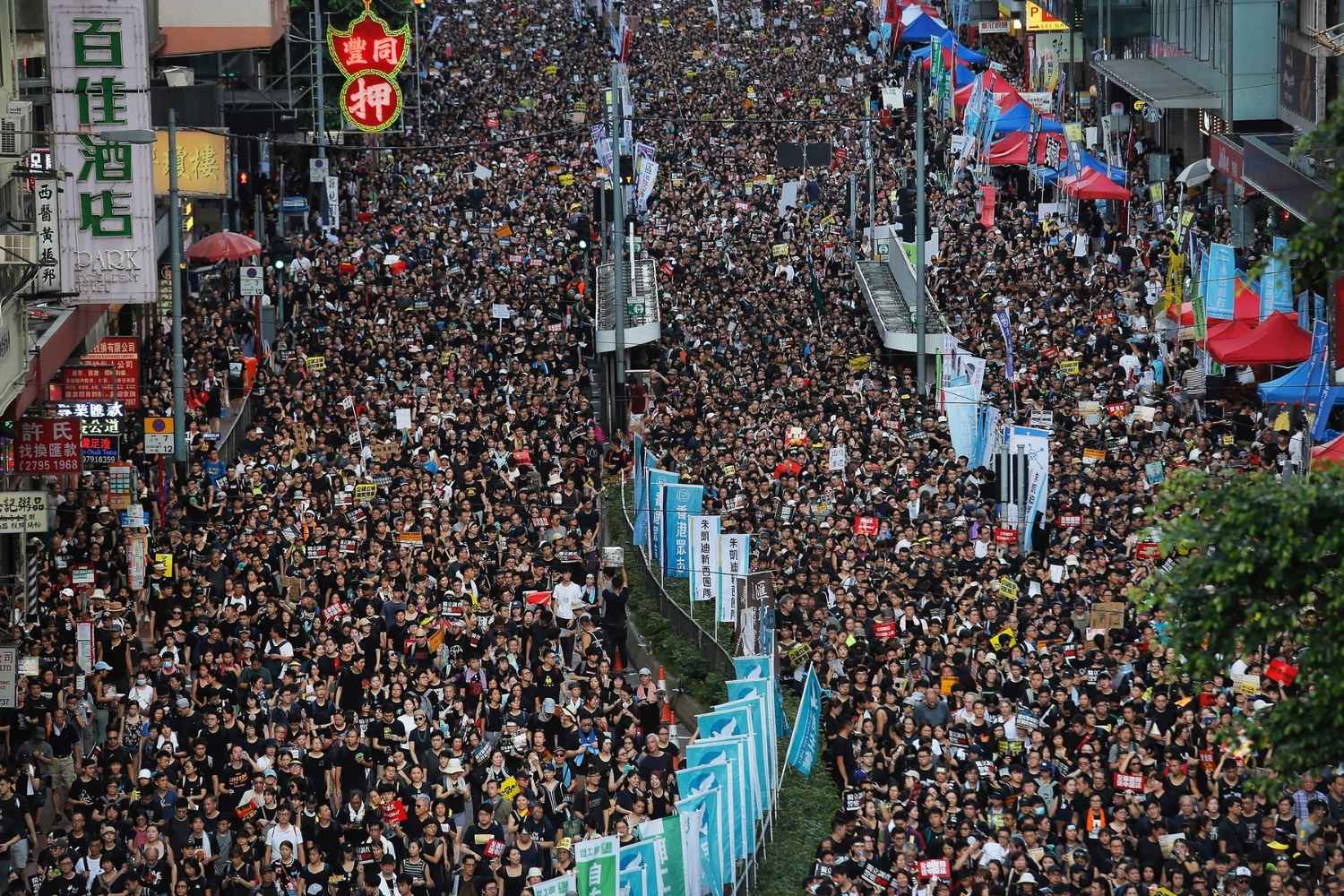
Why did the Hong Kong protests happen? The Hong Kong protests erupted due to a proposed extradition bill in 2019. This bill would have allowed suspects to be sent to mainland China for trial. Many feared it would undermine Hong Kong's judicial independence and endanger dissidents. The protests quickly grew, reflecting broader concerns about Beijing's increasing influence. Demonstrators demanded greater democratic freedoms, police accountability, and the withdrawal of the bill. The movement saw millions take to the streets, leading to clashes with police, widespread unrest, and international attention. The protests highlighted deep-seated tensions between Hong Kong's desire for autonomy and China's central authority.
Background of Hong Kong Protests
The Hong Kong protests have been a significant event in recent history, capturing global attention. These protests have roots in political, social, and economic issues. Here are some key facts to understand the depth and breadth of these demonstrations.
- The protests began in June 2019 as a response to a proposed extradition bill that would allow suspects to be sent to mainland China for trial.
- Over 1 million people participated in the first major protest on June 9, 2019.
- The protests quickly evolved into a broader movement demanding democratic reforms and police accountability.
- The extradition bill was officially withdrawn on October 23, 2019, but protests continued.
- Protesters adopted the slogan "Five demands, not one less," which included calls for universal suffrage and an independent inquiry into police conduct.
Key Events During the Protests
Several pivotal moments defined the course of the Hong Kong protests. These events not only shaped the movement but also drew international attention.
- On July 1, 2019, protesters stormed the Legislative Council building, causing significant damage.
- The Yuen Long attack on July 21, 2019, saw white-shirted men assaulting protesters and commuters, raising concerns about collusion with the police.
- The Hong Kong International Airport was occupied by protesters in August 2019, leading to flight cancellations and global headlines.
- The Polytechnic University siege in November 2019 resulted in a violent standoff between protesters and police.
- The District Council elections in November 2019 saw a record turnout, with pro-democracy candidates winning a landslide victory.
Symbols and Tactics
Protesters used various symbols and tactics to convey their messages and sustain their movement. These elements became iconic and widely recognized.
- The yellow umbrella became a symbol of resistance, originating from the 2014 Umbrella Movement.
- Protesters often wore black clothing and masks to protect their identities.
- The use of laser pointers to distract police and surveillance cameras became a common tactic.
- Lennon Walls, covered in colorful post-it notes with messages of support, appeared across the city.
- "Be water," a phrase inspired by Bruce Lee, described the fluid and adaptable nature of the protests.
Government and Police Response
The Hong Kong government and police force's response to the protests was a critical aspect of the movement. Their actions often fueled further unrest.
- The police used tear gas, rubber bullets, and water cannons to disperse crowds.
- Over 10,000 people were arrested during the protests, including many young students.
- Allegations of police brutality and misconduct were widespread, leading to calls for an independent investigation.
- The Hong Kong government declared the protests a "riot" on several occasions, which carries severe legal implications.
- The implementation of the National Security Law in June 2020 marked a significant escalation in the government's crackdown on dissent.
International Reactions
The international community closely watched the Hong Kong protests, with various countries and organizations expressing their views and taking actions.
- The United States passed the Hong Kong Human Rights and Democracy Act in November 2019, supporting the protesters' demands.
- The European Union and United Nations called for restraint and dialogue between the Hong Kong government and protesters.
- China consistently condemned the protests, labeling them as acts of terrorism and foreign interference.
- Global protests in solidarity with Hong Kong took place in cities like London, New York, and Sydney.
- Several countries offered asylum to Hong Kong activists facing persecution.
Impact on Hong Kong Society
The protests had a profound impact on Hong Kong society, affecting various aspects of daily life and the city's future.
- The protests led to a significant decline in tourism and economic activity in Hong Kong.
- The movement sparked a renewed sense of identity and political awareness among Hong Kong's youth.
Reflecting on the Hong Kong Protests
The Hong Kong protests have left a significant mark on the city's history. From the initial spark in 2019 to the ongoing impacts, these events have highlighted the power of collective action. Protesters, driven by a desire for greater autonomy and democratic freedoms, faced numerous challenges. Despite the hurdles, their determination brought global attention to their cause.
Understanding the protests requires looking at the complex interplay of politics, culture, and social dynamics. The movement has influenced not just Hong Kong but also international perspectives on governance and human rights. As we consider these facts, it's clear that the protests were more than just a series of events; they were a powerful statement about the will of the people.
The legacy of the Hong Kong protests will continue to shape discussions about democracy, freedom, and the future of the city.
Was this page helpful?
Our commitment to delivering trustworthy and engaging content is at the heart of what we do. Each fact on our site is contributed by real users like you, bringing a wealth of diverse insights and information. To ensure the highest standards of accuracy and reliability, our dedicated editors meticulously review each submission. This process guarantees that the facts we share are not only fascinating but also credible. Trust in our commitment to quality and authenticity as you explore and learn with us.
